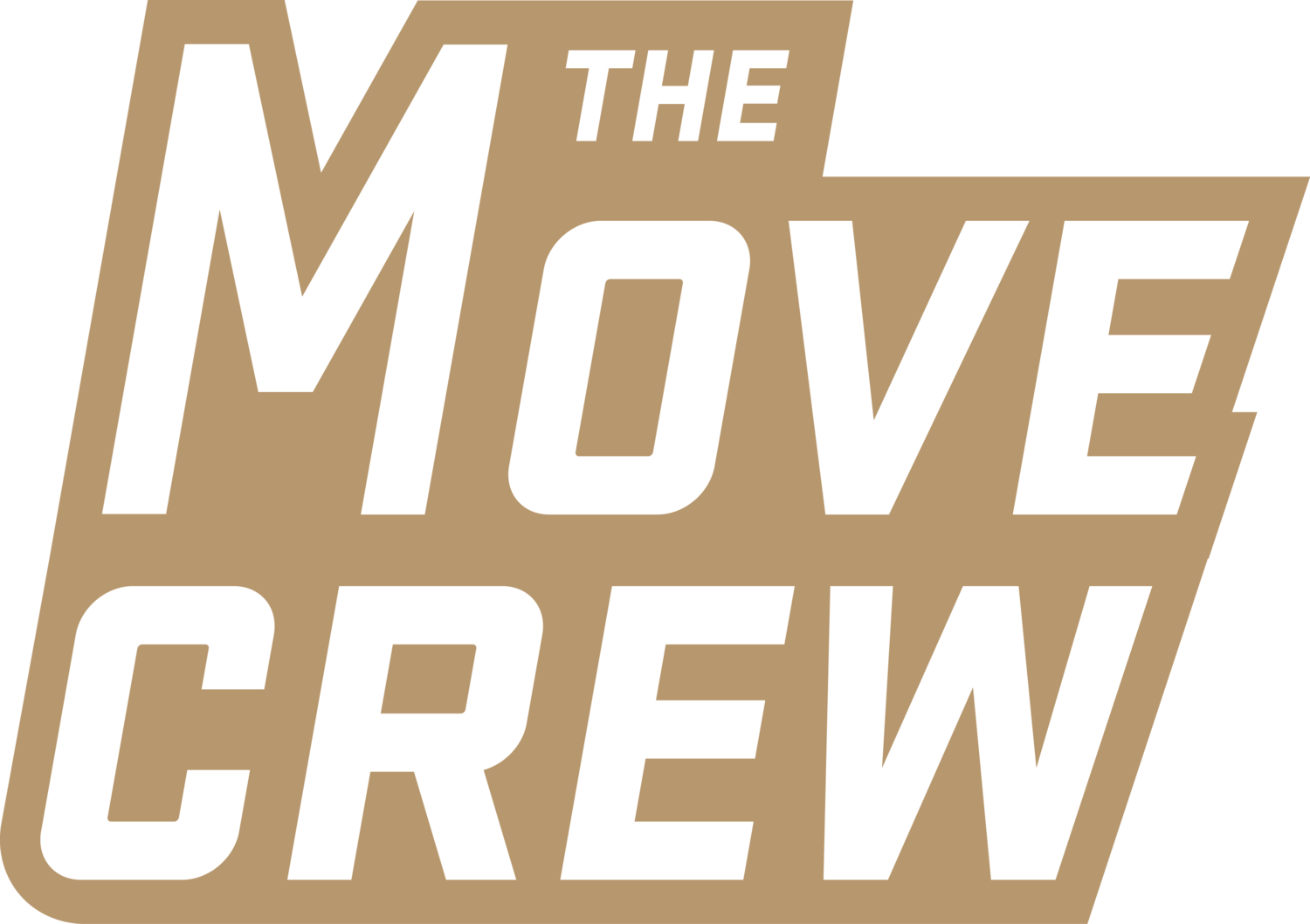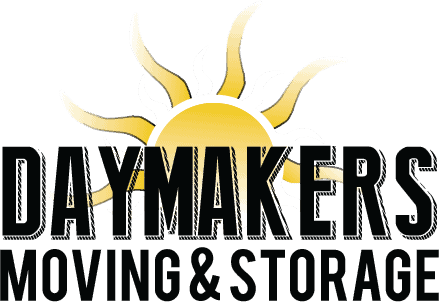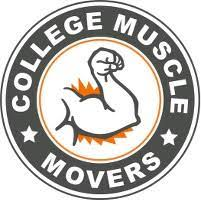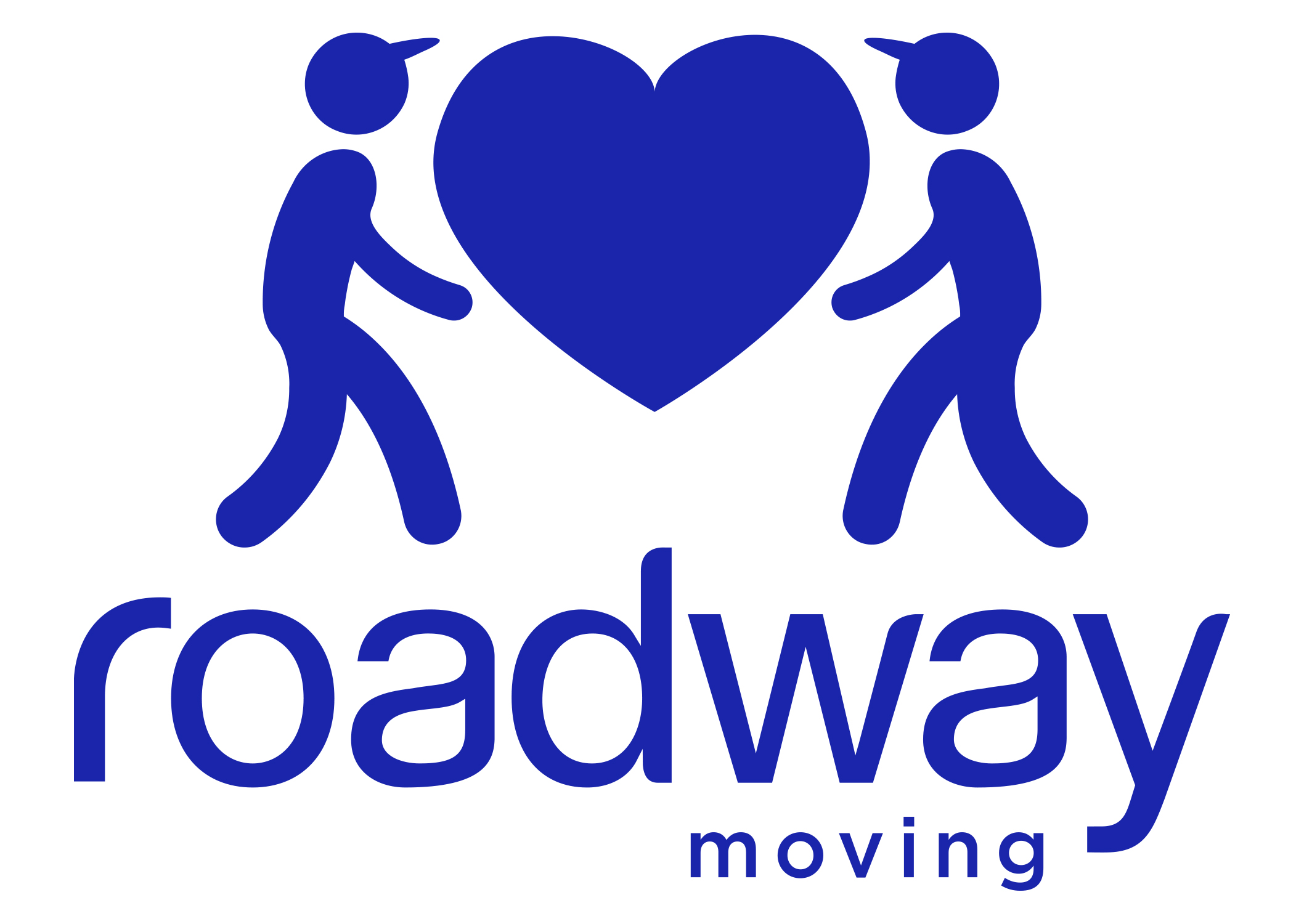Top-rated local movers that handle St. Paul to Gainesville moves
When planning a move from St. Paul to Gainesville, finding a local mover that also handles long-distance relocations can be tricky. We’ve taken care of the research for you — reviewing 35 local movers in St. Paul who provide long-distance services, and scoring them on price, customer reviews, and reliability.
Here are the top local moving companies to ensure a smooth transition from St. Paul to Gainesville.
- Matt’s Moving Company : 4.66 out of 5 stars
- Piepho Moving & Storage, Inc.: 4.62 out of 5 stars
- Metcalf Moving & Storage: 4.5 out of 5 stars
- The Move Crew: 4.5 out of 5 stars
- Daymakers Moving & Storage: 4.5 out of 5 stars
Company Info
State license #: 374236
Years in Business: 17
DOT #: 1704106
Services Offered
- Local moves
- Interstate moves
- Packing
- Unpacking
- Offices
- Pianos
- Crating
- Storage
- Pay by credit card
Company Info
State license #: 286311
Years in Business: 73
DOT #: 286311
Alternate Names: Rochester Transfer & Storage Company
Services Offered
- Local moves
- Interstate moves
- International moves
- Packing
- Unpacking
- Offices
- Pianos
- Hot Tubs
- Pool Tables
- Art
- Antiques
- Grandfather clocks
- Crating
- Crane vans
- Shipment tracking
- Full-valuation coverage
- Safes
- Pay by money order
- Pay by cash
- Pay by credit card
Company Info
Years in Business: 105
DOT #: 1127088
Services Offered
- Local moves
- Interstate moves
- International moves
- Packing
- Unpacking
- Offices
- Pianos
- Crating
- Full-valuation coverage
- Storage
- Pay by credit card
Company Info
State license #: 380620
Years in Business: 10
DOT #: 2552505
Services Offered
- Local moves
- Interstate moves
- Packing
- Unpacking
- Offices
- Pianos
- Crating
- Storage
- Pay by credit card
Company Info
Years in Business: 8
DOT #: 2593674
Services Offered
- Local moves
- Interstate moves
- Packing
- Unpacking
- Offices
- Pianos
- Pool Tables
- Art
- Antiques
- Crating
- Full-valuation coverage
- Storage
- Safes
- Pay by credit card
How much does it cost to move from St. Paul to Gainesville?
Movers in Minnesota charge $209 per hour on average. Here are average prices for a full-service moving company, moving container, or truck:
| Move size | Moving company | Moving container | Rental truck |
|---|---|---|---|
| Studio / 1 bedroom | $1,263 – $4,775 | $899 – $2,298 | $797 – $1,512 |
| 2 – 3 bedrooms | $2,779 – $6,753 | $1,738 – $3,184 | $916 – $1,912 |
| 4+ bedrooms | $5,234 – $8,880 | $2,183 – $4,510 | $1,075 – $2,220 |
Cost to hire movers from St. Paul to Gainesville
If you’re moving a studio or one-bedroom home from St. Paul to Gainesville, you can expect to spend between $1,263 and $4,775. For a two- or three-bedroom place, prices usually range from $2,779 to $6,753 on the same route. Got a larger household? Moving a four- or five-bedroom home from St. Paul to Gainesville typically runs between $5,234 and $8,880.
Cost of moving containers from St. Paul to Gainesville
When moving from St. Paul to Gainesville, for a small load, you’ll likely pay between $899 and $2,298. If you have a two- or three-bedroom home, costs usually range from $1,738 to $3,184. Got a big family or a four-plus bedroom house? Expect prices ranging anywhere from $2,183 up to $4,510. For detailed pricing info, take a look at our complete PODS cost guide.
Check out the most affordable moving container companies to help with your move from Minnesota.
Cost of moving truck rentals from St. Paul to Gainesville
Renting a moving truck in St. Paul is usually your cheapest option to get to Gainesville. Just keep in mind that you’ll handle all the lifting, packing, and driving yourself.
If you’re moving out of a studio or one-bedroom and renting a truck, plan to spend between $797 and $1,512. For two- or three-bedroom moves, prices typically land between $916 and $1,912. Dealing with a four-bedroom-plus home? Expect rental truck costs to be somewhere between $1,075 and $2,220.
These cost ranges already include estimated fuel costs.
Factors that impact moving costs from St. Paul to Gainesville
The cost of St. Paul movers will depend on:
- The size of your move: Costs rise with more belongings. A small one-bedroom move can start at $2,373, but larger homes can run up to $7,996.
- Seasonal timing: Demand peaks in summer — expect premium rates during moving season in St. Paul.
- Whether you hire pros or do it yourself: Choosing DIY with a truck ($797–$2,092) is cheaper, though tougher, than using movers.
What to know before moving from St. Paul to Gainesville
Many movers find Gainesville easier on the wallet than St. Paul – roughly 52% less for singles and 19% less for families.
Monthly basics average $1,727 for one person in Gainesville versus $3,633 in St. Paul. For a family of four, it’s $3,491 compared with $4,290.
See the cost breakdown below to pinpoint where the savings add up:
| St. Paul | Gainesville | |
|---|---|---|
| Average 1 BR rent | $1,444 | |
| Average 3 BR rent | $3,000 | |
| Average home value | $278,221 | $288,002 |
| Average income (per capita) | $63,483 | $59,013 |
| Cost of living (single) | $3,633 | $1,727 |
| Cost of living (family of four) | $4,290 | $3,491 |
| Unemployment rate | 4.9% | 4.4% |
| Sales tax | 9.88% | 7.0% |
| State income tax | 9.85% | 0.0% |
- As you consider relocating to Gainesville, note that rent can be roughly 19% more expensive than it is in St. Paul; adjust your financial plans to accommodate this change.
- Home prices are within about 5% of each other in Gainesville and St. Paul, so there’s no need to change up your mortgage budget, unless you’re upgrading your living situation.
- It’s important to evaluate your finances first. The average income is around 7% less in Gainesville than in St. Paul.
- Anticipate lower daily expenses, including food, gas, and utilities in Gainesville, where the cost of living for a single person is 52% less than in St. Paul.
- Moving to Gainesville could be an economically beneficial choice, reducing your family’s regular costs such as groceries, transport, and utilities. The cost of living for a family is 19% less than in St. Paul.
- Gainesville experiences an unemployment rate that is about 10% lower than that of St. Paul. This is generally a positive sign for those considering a move here, as it reflects a healthy economy.
- Sales taxes are 29% lower in Gainesville than in St. Paul. If you have a larger family or higher consumption habits, the lower sales tax in Gainesville can reduce your overall living expenses.
- Florida has no income tax, meaning you keep more of your gross income, which can be a major advantage for salaried workers, freelancers, and retirees with taxable income.
The breakdown below shows how typical living costs and monthly expenses line up when comparing St. Paul with Gainesville:
| Living Expense | St. Paul | Gainesville |
|---|---|---|
| Basic utilities | $310.42 | |
| Cell phone plan | $49.22 | |
| Dozen eggs | $4.53 | |
| Loaf of bread | $3.70 | |
| Fast-food/casual eatery (one meal) | $20.00 | |
| Dinner for 2 (mid-range restaurant) | $65.00 | |
| Gym membership | $45.25 |
How life is different in St. Paul vs. Gainesville
| St. Paul | Gainesville | |
|---|---|---|
| Population | 303,176 | 141,085 |
| Transportation score | 8 | 6 |
| Walkability score | 60 | 37 |
| Bike friendliness score | 64 | 69 |
| Crime index | 50.86 | 8.0 |
| Safety index | 49.14 | 52.61 |
| Air quality | Good | Good |
- Gainesville’s population is about 53% less than St. Paul.
- Gainesville’s public transportation score of 6 out of 10 is lower than St. Paul’s score of 8.
- Gainesville is less walkable than St. Paul with a score of 37 out of 100 vs St. Paul’s 60 out of 100.
- With a score of 69 out of 100, Gainesville is more bike-friendly than St. Paul, which has a score of 64 out of 100. The higher a city’s score, the more suited it is to safely accommodating cyclists.
- Gainesville’s crime rate is lower than St. Paul with a score of 8.0 compared to St. Paul’s 50.86. This means that Gainesville neighborhoods are safer than 8.0% of all U.S. neighborhoods, and St. Paul neighborhoods are safer than 50.86%.
- Gainesville is considered to be safer than St. Paul with a safety index of 52.61 vs St. Paul’s 49.14.
- Air quality in Gainesville is Good, and in St. Paul it’s Good.
Other things to consider for your St. Paul to Gainesville move
- HOA rules: It’s a good idea to look into your HOA or community regulations before moving day arrives.
- Elevator reservation: Reserve elevator access early if your building requires it, to avoid delays on moving day.
- Truck parking permits: Some cities require parking permits for large vehicles and moving trucks. Find out if you need any parking permits ahead of time.
- State licensing: Individuals and companies engaging in for-profit local and intrastate moving within the Sunshine State must register each year with the Department of Agriculture and Consumer Services – Division of Consumer Services. Double-check that the moving company is properly licensed before you hire them.
- State regulator: You can verify a Florida moving company’s license by visiting the state’s public utilities commission.
- Moving Permits: While Florida doesn’t mandate moving permits, checking local parking guidelines before your move-in day is still a good idea.
- Change of address: File your USPS change of address about a week before moving so mail reaches Gainesville smoothly. Start the process here.
- Moving company insurance: Every state requires moving companies to carry different levels of insurance. Released Value Protection stands out as a cost-effective choice, provided by movers at no extra expense, although it comes with limited coverage. In this option, the mover’s liability is capped at 60 cents per pound per article. To ensure comprehensive coverage matching the full value of your items, consult with your chosen moving company about alternative options or explore third-party insurance providers. Secure the best protection for your belongings during the move with these tailored coverage choices.
- Moving checklist: Use our moving checklist to stay on top of every detail and reduce last-minute stress.
Where to live in Gainesville
Now that you’ve chosen Gainesville as your next home, here are a few of the best neighborhoods in Gainesville to check out.
Best neighborhoods for singles
- Duckpond
- Midtown
- Northwest Gainesville
- Sugarfoot
- Suburban Heights
Best neighborhoods for families
- Northwest Gainesville
- Duckpond
- Haile Plantation
- Eastside
Things to do in Gainesville
After getting comfortable in your new Florida home, it’s time to see what Gainesville is all about. Whether you’re into food, art, nature, or nightlife — there’s plenty to check out:
- Arts and culture: From historic museums to vibrant art centers, Gainesville offers cultural landmarks like the Florida Museum of Natural History, Samuel P. Harn Museum of Art, Cade Museum for Creativity & Invention, and Matheson History Museum.
- Outdoor recreation: The city’s Sweetwater Wetlands Park, Devil’s Millhopper Geological State Park, Depot Park, and Kanapaha Park — among other sites — are great places to hike, ride bikes, or just enjoy nature.
- Sports: Grab a seat and root for the home team during an Florida Gators (SEC) game.
FAQ
When is the best time to move from St. Paul to Gainesville?
The most budget-friendly and comfortable times to move from St. Paul to Gainesville are in the spring or fall, when the weather is mild and moving rates in St. Paul are lower.
When is the cheapest time to move from St. Paul to Gainesville?
Because spring and fall moves from St. Paul to Gainesville are so common, winter can be a great time to move if you’re looking for lower prices. Read our moving discounts guide to see how.
How long does a move from St. Paul to Gainesville take?
A move of 1,448 miles from St. Paul, MN to Gainesville, generally takes three to eight days. Movers in St. Paul sometimes provide expedited service, while storage in Gainesville is a good fallback if you need extra time.
Which discounts can you find from movers in St. Paul?
Plenty of moving companies offer ways to help you save, from seasonal promotions to ongoing deals. In St. Paul, 3 movers provide AAA member discounts. 1 companies offer special pricing for members of the military. 2 extend savings to senior citizens.
Discount types, amounts, and availability can differ, so it’s worth confirming the details with each mover before you book.
Which movers in St. Paul offer piano or antique moving?
Some moving jobs call for extra care and expertise. 28 movers in St. Paul have the skills and equipment for piano transport. 13 specialize in safely moving antiques. Across MN, there are 42 piano movers and 17 antique movers, while nationwide the numbers reach 2,299 and 1,464.
Because not every mover offers these services, ask about specialty experience and insurance coverage when you request quotes.
Helpful moving resources
St. Paul moving services
Popular Minnesota routes
- Minnesota to Florida car shippers
- Minnesota to California movers
- Minnesota to Florida movers
- Minnesota to Georgia movers
- Minnesota to Illinois movers
- Minnesota to Michigan movers
- Minnesota to New York movers
- Minnesota to North Carolina movers
- Minnesota to Ohio movers
- Minnesota to Pennsylvania movers
- Minnesota to Texas movers
- See All Moving Routes
Not what you were looking for?
Check out other categories that can help you find the information you need!


























